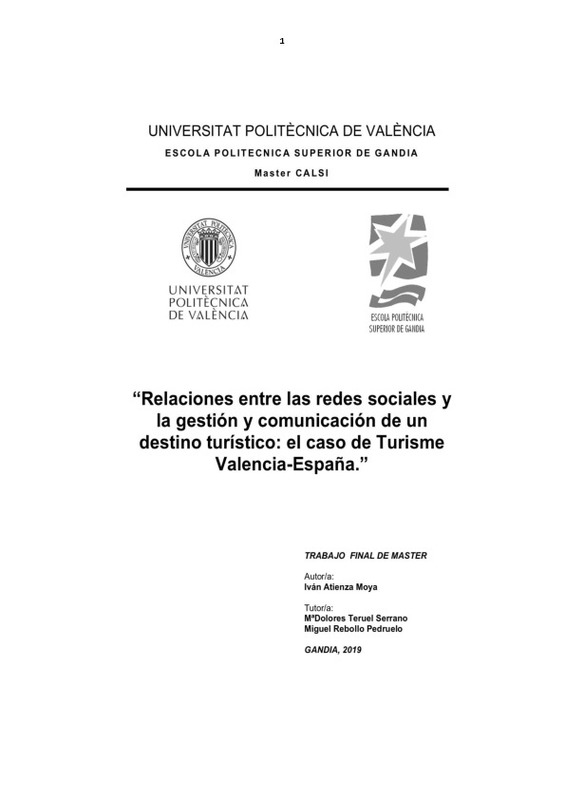JavaScript is disabled for your browser. Some features of this site may not work without it.
Buscar en RiuNet
Listar
Mi cuenta
Estadísticas
Ayuda RiuNet
Admin. UPV
Relaciones entre las redes sociales y la gestión y comunicación de un destino turístico: el caso de Turisme Valencia- España
Mostrar el registro completo del ítem
Atienza Moya, I. (2019). Relaciones entre las redes sociales y la gestión y comunicación de un destino turístico: el caso de Turisme Valencia- España. Universitat Politècnica de València. http://hdl.handle.net/10251/129077
Por favor, use este identificador para citar o enlazar este ítem: http://hdl.handle.net/10251/129077
Ficheros en el ítem
Metadatos del ítem
| Título: | Relaciones entre las redes sociales y la gestión y comunicación de un destino turístico: el caso de Turisme Valencia- España | |||
| Autor: | Atienza Moya, Iván | |||
| Director(es): | ||||
| Entidad UPV: |
|
|||
| Fecha acto/lectura: |
|
|||
| Resumen: |
[ES] El presente trabajo final de máster aborda el estudio de las redes sociales en
su uso como instrumento para la promoción y gestión turística de un destino.
Se parte de la premisa de que la promoción es necesaria ...[+]
[EN] The present final work of master addresses the study of social networks in its
use as an instrument for the promotion and tourist management of a
destination. It is based on the premise that promotion is necessary ...[+]
|
|||
| Palabras clave: |
|
|||
| Derechos de uso: | Reserva de todos los derechos | |||
| Editorial: |
|
|||
| Titulación: |
|
|||
| Tipo: |
|
Localización
recommendations
Este ítem aparece en la(s) siguiente(s) colección(ones)
-
EPSG - Trabajos académicos [5004]
Escuela Politécnica Superior de Gandia







